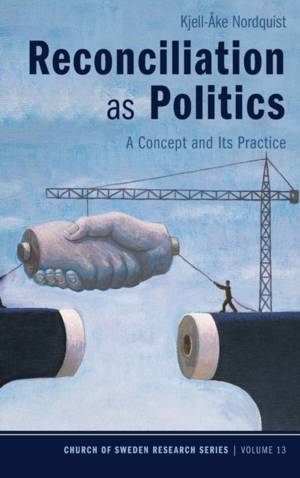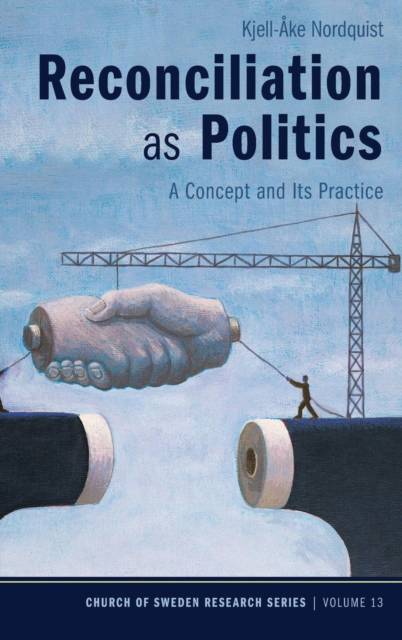
- Afhalen na 1 uur in een winkel met voorraad
- Gratis thuislevering in België vanaf € 30
- Ruim aanbod met 7 miljoen producten
- Afhalen na 1 uur in een winkel met voorraad
- Gratis thuislevering in België vanaf € 30
- Ruim aanbod met 7 miljoen producten
Zoeken
€ 63,95
+ 127 punten
Uitvoering
Omschrijving
Is "political reconciliation" a new tool for peace-building and justice--in peace processes and other complex social reconstruction efforts-after dictatorship or civil wars? Or is it just another term for established practices like negotiation, conflict resolution, and cooperation? Reconciliation processes after conflict and war can be very different in form and content. Kjell-Ake Nordquist analyzes the concept of reconciliation from a political perspective and outlines an understanding of its characteristics in a comparison with its closest "conceptual relatives" forgiveness and conflict resolution. In addition, Nordquist specifically addresses the structural dimensions of reconciliation, and formulates an understanding of reconciliation that identifies a specific contribution to the settlement of political conflicts. In this way, political reconciliation has the potential to be an approach that, along with other activities, contributes to more complete and genuine peace processes.
Specificaties
Betrokkenen
- Auteur(s):
- Uitgeverij:
Inhoud
- Aantal bladzijden:
- 172
- Taal:
- Engels
- Reeks:
- Reeksnummer:
- nr. 13
Eigenschappen
- Productcode (EAN):
- 9781532600821
- Verschijningsdatum:
- 14/03/2017
- Uitvoering:
- Hardcover
- Formaat:
- Genaaid
- Afmetingen:
- 152 mm x 229 mm
- Gewicht:
- 403 g

Alleen bij Standaard Boekhandel
+ 127 punten op je klantenkaart van Standaard Boekhandel
Beoordelingen
We publiceren alleen reviews die voldoen aan de voorwaarden voor reviews. Bekijk onze voorwaarden voor reviews.











